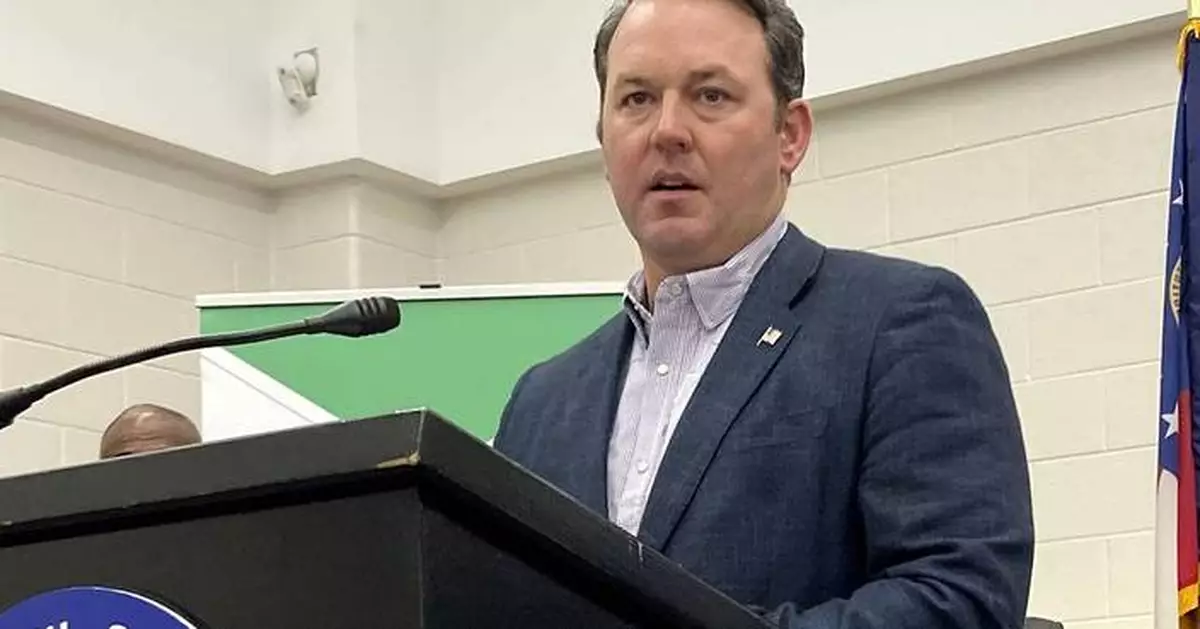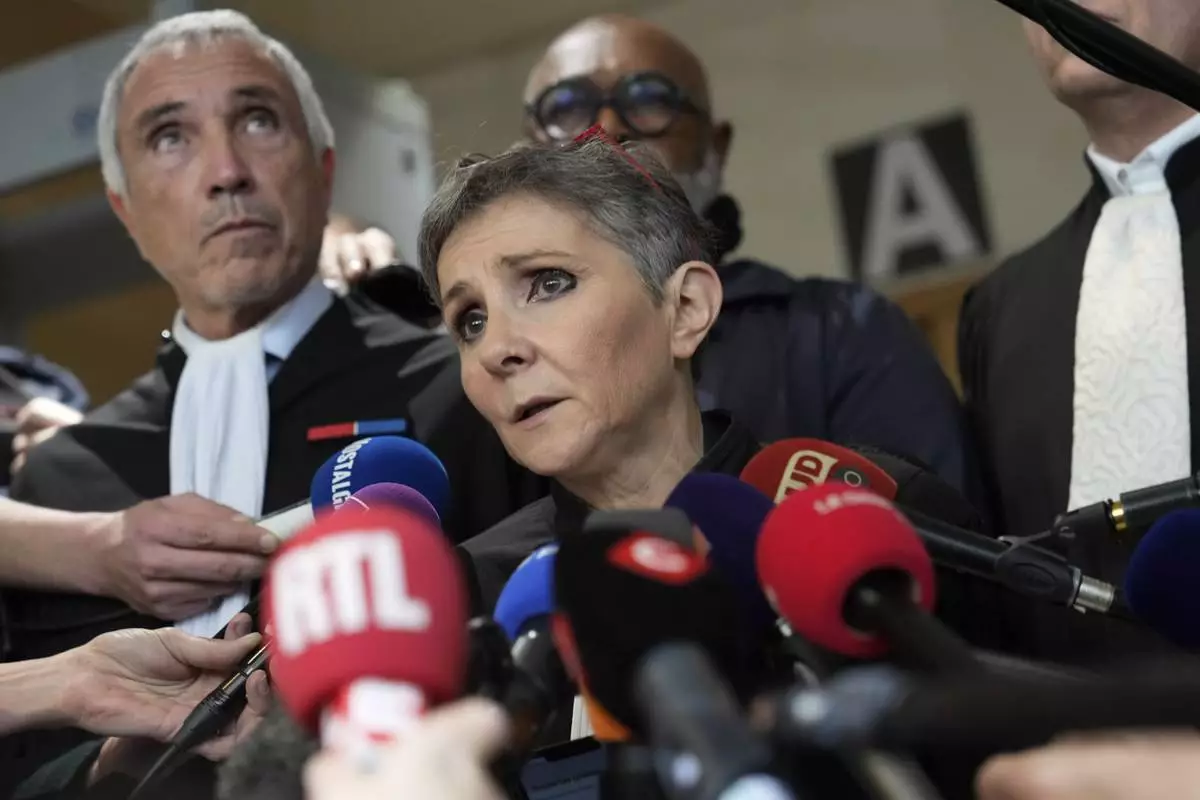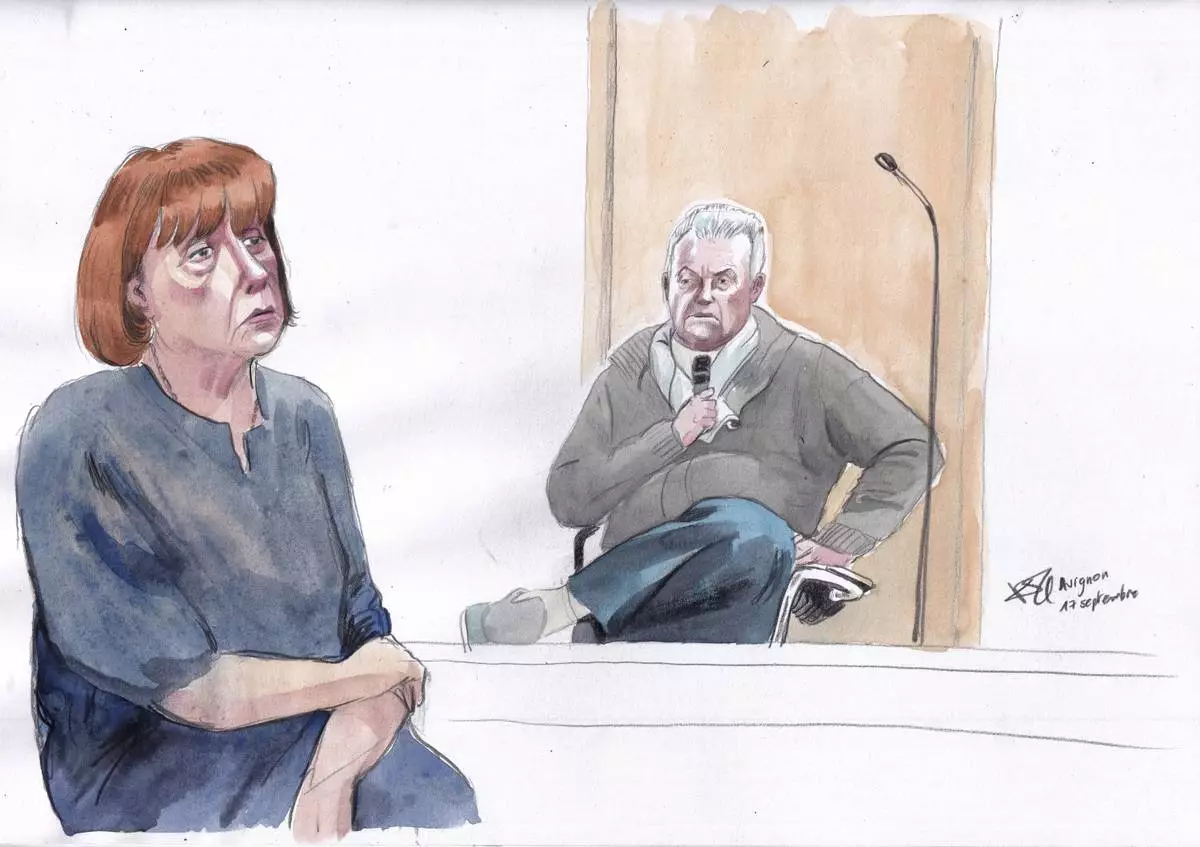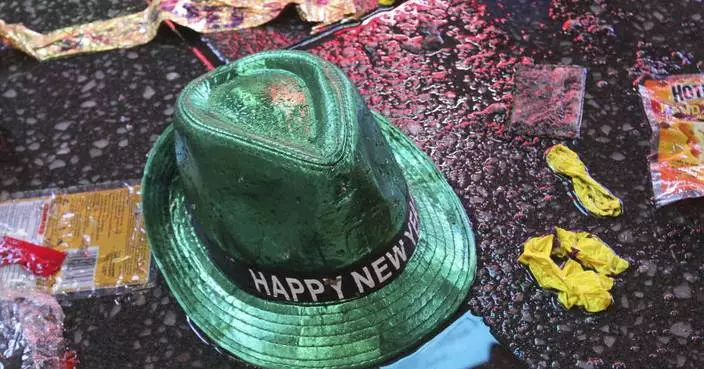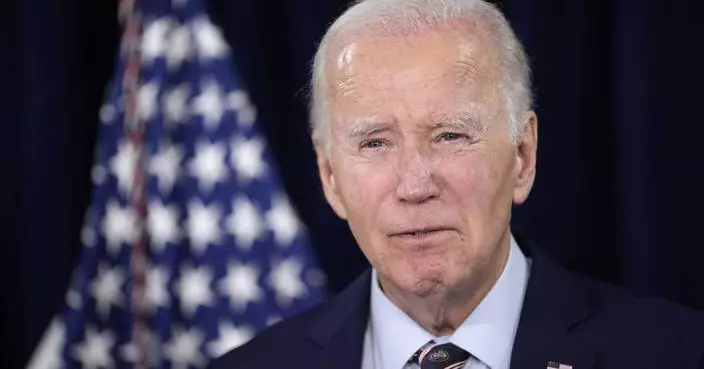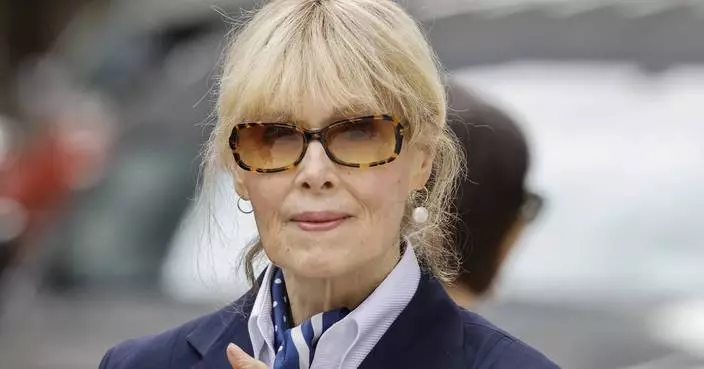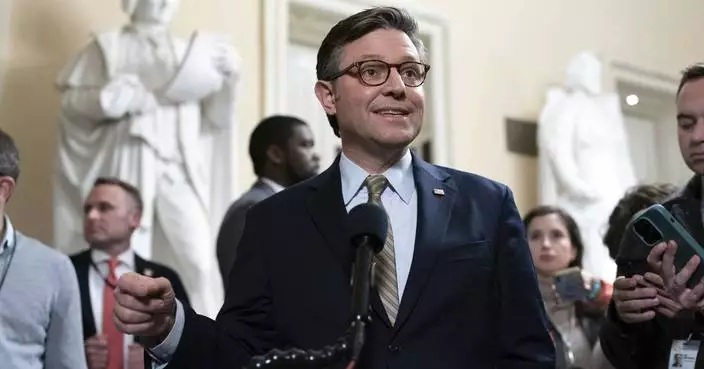ATLANTA (AP) — A special prosecutor has decided not to pursue charges against Georgia Lt. Gov. Burt Jones over efforts to overturn Donald Trump's 2020 presidential election loss in the state.
Pete Skandalakis, executive director of the Prosecuting Attorneys' Council of Georgia on Friday announced that he had decided not to bring the matter to a grand jury. Skandalakis appointed himself to handle the matter in April, nearly two years after Fulton County District Attorney Fani Willis was barred from prosecuting Jones as part of her election interference case against former Trump and others.
Jones was one of 16 state Republicans who met at the Georgia Capitol in December 2020 to sign a certificate stating that Trump had won Georgia and declaring themselves the state’s “duly elected and qualified” electors even though Democrat Joe Biden had been declared the state's winner.
A state senator at the time, Jones signed a call for a special session of Georgia’s legislature aimed at overturning Biden’s narrow win in the state. He joined 26 other Georgia state lawmakers in a court brief asking the U.S. Supreme Court to agree with a request from Texas to throw out election results in Georgia, Pennsylvania, Michigan and Wisconsin.
Jones also flew to Washington on Jan. 5, 2021, and had dinner with Vice President Mike Pence. Jones was carrying a letter from another lawmaker asking Pence to delay counting Electoral College votes. However, Jones has said he decided not to give the letter to Pence, saying he concluded Pence wasn’t open to the argument.
After Willis notified Jones in the summer of 2022 that he was a target of her investigation into possible illegal election meddling by Trump and others, he argued she shouldn't be able to prosecute him because she had hosted a fundraiser for his Democratic opponent in the lieutenant governor’s race. Superior Court Judge Robert McBurney agreed, ruling in July 2022 that Willis’ actions created an “actual and untenable” conflict of interest.
That left it up to the Prosecuting Attorneys’ Council, a nonpartisan state agency that supports district attorneys, to appoint a prosecutor to decide whether Jones should be charged. After Willis obtained an indictment against Trump and 18 others in August 2023, Skandalakis, the group's head, said he would begin looking for an appropriate prosecutor to determine whether Jones should also face charges. In April, Skandalakis announced that he would take on the task himself.
“I have always wanted to tell my story in front of a fair and unbiased prosecutor, which Fani Willis clearly is not. I am thankful that I finally had the opportunity to do that," Jones said in a statement after Skandalakis' decision was announced.
A spokesperson for Willis' office declined to comment.
Skandalakis released a four-page statement explaining how he reached his decision. He wrote that he considered evidence including transcripts and depositions from a special grand jury investigation led by Willis’ office, prosecutors’ investigative file and text messages from Jones’ cellphone. He also said he interviewed Jones four times.
The investigation was confined to Jones’ actions during challenges to the 2020 general election, specifically his role in those challenges and his motives at the time, Skandalakis wrote.
He sought to answer four questions: whether the matter warranted further investigation by law enforcement, whether there should be another special grand jury investigation, whether there was enough evidence to support probable cause for criminal charges and whether the matter should be presented to a regular grand jury to consider charges. The answer to all of those questions was “no,” he wrote.
Jones “acted in a manner consistent with his position representing the concerns of his constituents and in reliance upon the advice of attorneys” when he served as a Republican elector, Skandalakis wrote. He added that Jones “did not act with criminal intent, which is an essential element of committing any crime.”
Jones has repeatedly denied wrongdoing, saying he and other Trump electors acted on the advice of lawyers to preserve the former president's chances if he won an election challenge that was pending in court at the time. Three others who signed the Republican elector certificate were among those indicted along with Trump.
Trump and the 18 others indicted in August were accused of participating in a wide-ranging scheme to illegally overturn Trump’s loss in Georgia. Four people have pleaded guilty after reaching deals with prosecutors. The others, including the former president, have pleaded not guilty.
The case is largely on hold right now while an appeal of an order allowing Willis to continue prosecuting the case is pending. Trump and others argued that a romantic relationship Willis had with special prosecutor Nathan Wade, whom she had hired for the case, created a conflict of interest. The judge in the case said there was no conflict of interest that merited Willis' removal as long as Wade left the case, which he did.
Widely expected to run for governor in 2026, Jones has positioned himself as Trump’s top surrogate in Georgia. The decision not to prosecute him is unlikely to end criticism of Jones’ actions after the 2020 elections. But it could embolden efforts in the state Senate to attack Willis.
Senators close to Jones spearheaded the creation of a special committee to investigate Willis that could then subpoena witnesses and take sworn testimony. That committee had subpoenaed Willis to appear Friday, but she did not show up.
Recommending charges against Jones could hav e put Skandalakis in a difficult spot. As lieutenant governor, Jones has influence over how much money lawmakers spend on the Prosecuting Attorneys' Council.
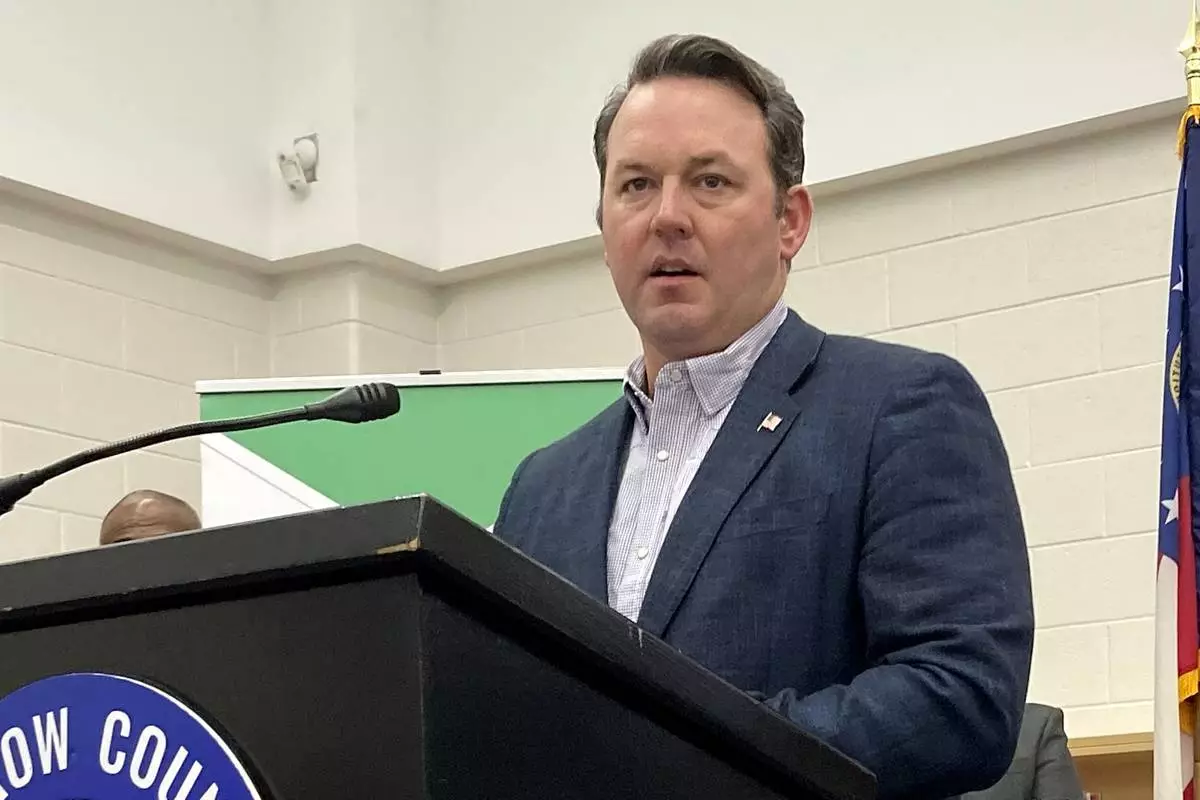
FILE - Georgia Lt. Gov. Burt Jones speaks, Oct. 25, 2023, in Winder, Ga. (AP Photo/Jeff Amy, File)


